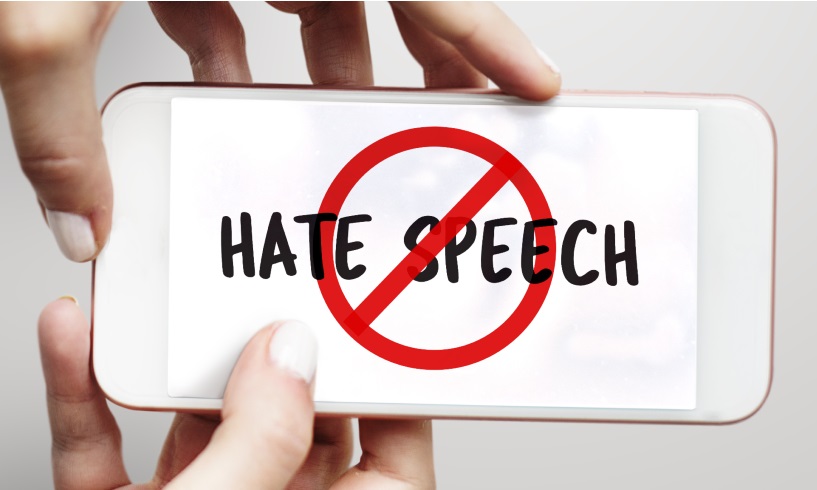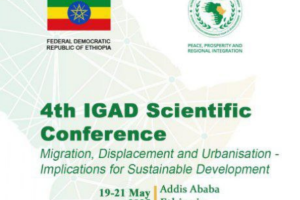
The swift and unchecked expansion of misinformation and fake news in the digital age warrants urgent attention and action. With the click of a button, false narratives and malicious content can be disseminated to millions of users leading to misguided beliefs and distorted perceptions. This unchecked flow of misinformation can erode public trust in institutions, sow discord within communities, and even incite violence.
The urgency to establish effective regulatory measures that curtail the misuse of digital platforms by individuals’ intent on propagating hate speech and fake news has become increasingly apparent in recent times.
The establishment of stringent regulations governing social media platforms is of utmost importance in addressing the increasing prevalence of hate speech and the dissemination of fake news. To effectively tackle these issues, it is imperative to implement comprehensive guidelines that not only detect but also actively discourage the spread of hate speech and false information.
In order to address the alarming issue of individuals misusing digital platforms to spread hate speech and disseminate fake news, it is essential to establish and enforce regulatory measures.
In fact, the emergence of social media platforms has revolutionized the way people communicate offering them an expansive array of avenues to express their thoughts, opinions, and ideas.
There is a lack of accountability in the digital realm leading to a rampant spread of hate speech and disinformation without any repercussions. By implementing stringent regulatory measures, users will be more cautious about what they post, knowing that there are consequences for their harmful actions. Setting clear definitions and guidelines will help ensure a consistent approach in determining what constitutes hate speech and how it should be dealt with.
Implementing robust regulations can help deter and control the propagation of hate speech and fake news. By establishing clear guidelines and standards for online content, authorities can hold individuals accountable for their actions and prevent the spread of harmful and misleading information. These regulatory measures can set boundaries and ensure that digital platforms are used responsibly and ethically.
Stringent regulations can create a deterrent effect discouraging individuals from engaging in the dissemination of hate speech and fake news. By imposing penalties for violators such as fines or temporary suspensions, policymakers can emphasize the seriousness of these offenses and dissuade potential offenders.
Collaborative efforts also ensure that the interests of all parties involved are taken into consideration resulting in regulations that are more practical, enforceable, and representative of the collective will.
By providing individuals with the tools and knowledge to discern between credible and unreliable sources, they can become less susceptible to manipulative content. These initiatives can empower users to critically evaluate information, fostering a culture of media literacy and resilience against the influence of hate speech and fake news.
In a constantly evolving digital landscape, regulations must be flexible enough to accommodate new challenges and developments. Regular reviews and updates of regulatory frameworks can ensure their effectiveness in addressing emerging threats and maintaining the integrity of digital spaces.
Given the global nature of the internet, collaborative efforts between countries can help establish consistent standards and guidelines across borders. By sharing best practices, exchanging information, and coordinating efforts, countries can collectively combat the misuse of digital platforms.
In the era of digital communication, the rapid dissemination of misinformation and fake news through various platforms poses a formidable obstacle to the credibility of information exchange. This widespread issue not only undermines public opinion but also threatens social harmony and political stability.
By the same token, by educating the public about the potential dangers of spreading false information and promoting hate speech, individuals can become more responsible citizens and actively contribute to curbing these issues. Moreover, media literacy programs should be implemented to equip individuals with the critical thinking skills necessary to discern reliable sources of information from falsehoods.
Collaborations between social media platforms and educational institutions can play a pivotal role in fostering public education on the dangers of fake news and hate speech. Platforms can partner with schools and universities to provide resources, expert speakers, and workshops that educate students and teachers alike on the importance of media literacy and responsible engagement on social media.
Encouraging digital platforms to promote ethical content creation and consumption practices can significantly reduce the prevalence of harmful information. Implementing measures such as fact-checking mechanisms, user reporting systems, and content labeling can help users navigate online spaces more responsibly and critically.
The rampant spread of misinformation and fake news through digital platforms poses a significant threat to information integrity, public opinion, social cohesion, and political stability.
Alongside the implementation of regulatory measures, it is crucial to prioritize widespread public education regarding the perils associated with fake news and hate speech. This educational effort needs to commence from a young age and equip individuals with the essential skills and knowledge required to identify and combat misinformation and hate speech effectively.
Given the borderless nature of online platforms, cooperation among countries is essential to address the global spread of false information effectively. Sharing knowledge, exchanging best practices, and collaborating on regulatory standards can strengthen efforts to combat misinformation while respecting diverse cultural contexts and legal frameworks.
Collaborative efforts among countries can establish common frameworks and protocols that harmonize regulatory approaches and facilitate the exchange of best practices. This cooperation can help dismantle the transnational networks that perpetuate hate speech and disinformation.
Media outlets and journalists also play a crucial role in public education efforts. They have the responsibility to report accurately and ethically while also dedicating resources to debunking false information and raising awareness about the consequences of hate speech.
The proliferation of misinformation and fake news in today’s society is fueled by the ease and speed at which information can be shared online. With just a few clicks, false or misleading information can be amplified and reach millions of people within seconds. This erosion of truth is particularly concerning as it can distort public opinion, influence decision-making processes, and potentially lead to social unrest.
The threat posed by misinformation and fake news to social harmony is rooted in its potential to exacerbate existing divisions within societies. By disseminating falsehoods or creating divisive narratives, unscrupulous actors can exploit societal fault lines, incite hatred, and perpetuate conflicts. This not only erodes trust between different groups but also makes it increasingly difficult to foster understanding, tolerance, and collaboration among diverse communities.
By manipulating public opinion through false narratives, bad actors can undermine democratic processes, polarize societies, and manipulate election outcomes. This poses a direct threat to the integrity of democratic systems, as it erodes public trust in institutions and can lead to political instability.
Regulatory measures can assist in combating the rapid spread of misinformation and disinformation. By mandating fact-checking procedures requiring platforms to verify the accuracy of information before it is disseminated authorities can reduce the prevalence of false narratives and promote a more informed society.
In an interview Anteneh Tsegaye (Ph.D.), School of Journalism and Communication, Addis Ababa University, gave recently to the Ethiopian Press Agency said the growth and diversification of the media industry have brought about both positive and negative consequences. On one hand, it has provided individuals with access to a wide range of perspectives and opinions, promoting a more inclusive and democratic society. However, on the other hand, this expansion has also created opportunities for certain groups or individuals to exploit the media platforms as a means to incite unrest and discord within communities.
The fact that the majority of false information is well planned and targeted and the negative effect it has on the public is devastating, he said adding that false information is widely shared due to the nature of the platforms regardless of Ethiopia’s limited internet penetration.
An overwhelming majority of social media content, specifically over 85%, is centered on political topics. This highlights the concerning prevalence of politically motivated narratives in the virtual sphere.
Furthermore, the academician strongly emphasized the detrimental consequences of manipulative and inflammatory social media content in fueling unrest in various regions. The destructive impact of such content has come at a great cost to Ethiopia, as it has unnecessarily burdened the nation with additional challenges and repercussions.
Anteneh highlights the issue of ineffective regulation regarding social media platforms and how this lack of accountability has exacerbated the problem. The absence of strict measures that hold violators accountable for their actions allows individuals to act with impunity on social media. This has led to a significant increase in hate speech and disinformation being spread on these platforms.
BY ADDISALEM MULAT
The Ethiopian Herald November 26/2023




